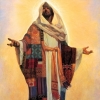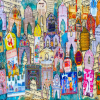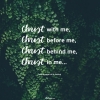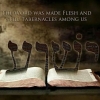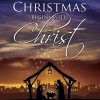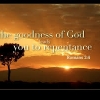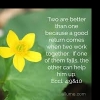| << Previous 1 - 2 - 3 - 4 - 5 - 6 - 7 Next >> |
The tower or ziggurat was the great symbol of the ancient Mesopotamian city states of the lower Tigris-Euphrates valley, the cradle of civilization. It was there that human beings first settled, established agriculture, and built cities. As the Torah makes clear, one of the great discoveries of Mesopotamia (along with the wheel, the arch and the calendar) was the ability to manufacture building materials, especially bricks made by pouring clay into molds, drying it in the sun, and eventually firing it in kilns: “And they said one to another: ‘Come, let us make brick, and burn them thoroughly.’ And they had brick for stone, and slime had they for mortar” (Gen.11:3). This made possible the construction of buildings on a larger scale and reaching greater heights than hitherto. From this grew the ziggurat in the plains of Shinar (Gen.11:1), a stepped building of many levels, which came to have profound religious significance. Essentially these towers – of which the remains of at least thirty have been discovered – were man-made “holy mountains,” the mountain being the place where heaven and earth most visibly meet. Inscriptions on several of these buildings, decoded by archaeologists, refer, as does the Torah, to the idea that their top “reaches heaven”: “And they said: ‘Come, let us build us a city, and a tower, with its top in heaven,’ ” (Gen.11:4). The largest – the great ziggurat of Babylon to which the Torah refers – was a structure of seven stories, three hundred feet high, on a base of roughly the same dimensions.
The results of human behavior most often are the opposite of what God intended. The builders of Babel wanted to concentrate humanity in one place: “Let us build a city…and not be scattered over the face of the whole earth” (Gen.11:4). The result was that they were dispersed: “from there the Lord scattered them over the face of the whole earth” (Gen.11:8). They wanted to “make a name” (11:4) for themselves, and they did, but the name they made – Babel – became an eternal symbol of confusion. Their pride lay in their newfound technological ability to construct buildings of unprecedented grandeur. They did not realize that the greatest creative power is LANGUAGE – a message found several times in the opening chapter of Genesis with the great simplicity that is repeated often in Genesis 1… “And God said…and there was.”
The Babel building project in Genesis 11:1-8 had two main goals – the city and the tower. The city is a means to concentrate people geographically, and the tower provides a vantage point for control of those people. Imagine multiple generations of the survivors of the Flood living in the flood plains in and around Babel. Whoever has the high ground establishes control; the higher the tower, the more control. A tower with “its head in the heavens” expresses the desire to control everyone, to be all-powerful. No wonder the ancient rabbis saw the attempt to build the tower as a rebellion against God. Remember that it is only God who has dominion over humanity. People are not to dominate other people. And certainly, nobody should have ultimate control over all humanity, as the designers of the tower intended. The builders of the tower were ultimately challenging God’s rule over people.
God is God; humanity is humanity. There can be no blurring of these boundaries. That was the sin of the builders of the tower. Their aspiration to “reach heaven” (Gen.11:4) was laughable, and indeed the Torah makes a joke of it. They think that their construction – three hundred feet high – has reached heaven, whereas God has to “come down” to look at it (“Man plans, and God laughs”). Intoxicated by their technological advancements, the builders of Babel believed they had become like gods and could now construct their own cosmopolis, their man-made miniature universe. Not content with earth, they wanted to build an abode in heaven. It is a mistake many civilizations have made, and the result is catastrophe. As Lord Acton pointed out, even the great city-state of Athens which produced Socrates, Plato and Aristotle, self-destructed when “the possession of unlimited power, which corrodes the conscience, hardens the heart, and confounds the understanding of monarchs, exercised its demoralizing influence.” What went wrong in Athens, Lord Acton writes, was the belief that “there is no law superior to that of the State – the lawgiver is above the law.” In modern times, the reenactment of Babel is most clearly associated with the names of Hitler, Stalin, Pol Pot, etc.
Rabbi Naftali Zvi Yehudah Berlin, (1817–1893), writing in Czarist Russia prophetically foreseeing the worst excesses of communism, talks about Babel as the world’s first totalitarianism, in which to preserve the masses as a single entity, all freedom of expression is suppressed (hence the expression “the whole world had one language and a unified speech”). The human race has witnessed way too many times in its history the desire by the few power-hungry to control the masses. One of the most terrifying threats to totalitarian rulers is the free dissemination of information, which is why, in the Western world, freedom of the press is such a core value. It is only through the control of information that the power-hungry can hope to limit the emergence of new ideas. It is only through the limiting of ideas and freewill that the powerful can impose their will of the powerless. Now we also understand the fear of the Babel leadership (Gen.11:4)– “lest we be scattered.”
God’s intent is for man to fill the earth, while the leaders in Babel seek to undermine the will of God by concentrating humanity in one place, the city with its control tower. Hence, we understand the divine judgement, which leads to the scattering of peoples across the face of the planet. What is more, we understand God’s method of salvation in this judgement at Babel. It is an act of God to dismantle the evil plans of power-hungry individuals who ultimately challenge God’s will and ways. Changing the language of people is not simply a tool to confound their plans. First, the inability for neighbors to understand each other forces people to live apart, thus moving them into the purpose of God to fill the earth and be fruitful (Gen.1:28). Secondly, the diversity of language leads to the expansion of the human civilization as people discover, explore, express, and implement a diversity of thoughts and ideas.
Indeed, what differentiates humans from other animals is the ability to speak. Targum Onkelos translates the last phrase of Genesis 2:7, “God formed man out of dust of the ground, and breathed into his nostrils the breath of life, and man became a living creature,” as “and man became ruaĥ memallelah, a speaking spirit.” Because we can speak, we can think, and therefore imagine a world different from the one that currently exists. Creation begins with the creative word, the idea, the vision, the dream. Language – and with it the ability to remember a distant past and conceptualize a distant future – lies at the heart of our uniqueness as the image of God. Just as God makes the natural world by words (“And God said…and there was”) so we make the human world by words, which is why the Bible takes words so seriously: “Life and death are in the power of the tongue,” says the book of Proverbs (18:2). Already at the opening of the Torah, at the very beginning of creation, is foreshadowed the Judeo-Christian doctrine of revelation: that God reveals Himself to humanity not in the sun, the stars, the wind or the storm but in and through words – sacred words that make us co-partners with God in the work of redemption. Our human creative power is linked to our language (words) – the medium through which we communicate our ideals, construct imaginative possibilities, and call others to join us in realizing them. Hence, the lack of diversity in language in the story of Babel highlights limitations to human creativity. This is understandable, as every different language – with its unique grammar, structure, and vocabulary – yields nuanced differences of tone, meaning, intensity, etc. Different languages enhance the human creativity. Diversity is a sign of strength, not weakness!
Only when God is God can man be man. This means organizing our world under the sovereignty of our Creator. Without this conscious effort of living under God’s Word, there is little to prevent human beings from sacrificing the many for the sake of the few, or the few for the sake of the many. Only a respect for the integrity of creation under God’s intended purpose will stop human beings from destroying themselves. Humility in the presence of Divine order is our last, best safeguard against dehumanizing ourselves. Babel was the first civilization, but sadly not the last, to begin with a dream of utopia and end in a nightmare of hell. When human beings try to live apart from the Word and Will of God, they quickly become less than human. Diversity is a sign of the strength of God in our lives; it is not human weakness!
Adapted from:
- Sacks, Jonathan. Genesis: The Book of Beginnings (Covenant & Conversation)
- Grumet, Zvi. Genesis: From Creation to Covenant.
- Lord Acton, Essays in the History of Liberty (Indianapolis: Liberty Classics, 1986), 13.
Towards the end of the fourth chapter in the Book of Esther, we find Esther telling her uncle Mordechai about all the problems she might encounter while interceding with King Xerxes regarding the fate of the Jewish people. Mordechai listens and then responds to her with the famous words, Im haharesh tachrishi, ba’et hazot revach v’hatzla ya’amod layehudim mimakom acher, “If you are silent and you do nothing at this time somebody else will save the Jewish people.” U’mi yodeia im l’et kazot, higa’at lamalchut? “But who knows, was it not for just this moment that you became a Queen, with access to King Xerxes in the royal palace?”
For a believer in-Christ, this statement by Mordechai is the ultimate statement serving the Lord despite not sensing His presence… that wherever we are, sometimes the Lord is asking us to realize why He put us here, with these spiritual and natural gifts, at this time, with these dangers, in this place. It comes down to is our fundamental belief that God never abandons us, that He puts us here with something to do (Hebrews 13:1-8). Even in the worst “apparent hiding” of God, if you listen hard enough, you can hear Him calling to us as individuals, saying U’mi yodeia im l’et kazot higa’at lamalchut? “Was is not for this very challenge that you are here in this place at this time?” (Esther 4:14)
I want to tell you a story about a man named Eddie Jacobson. Eddie was an ordinary Jewish guy from the Lower East Side of New York. When Eddie was a child, his parents moved to Kansas City and there he met a child his own age. Soon they became close school friends, did military service together during the First World War, and decided that when the war was over they would go into business together. They set up a clothing store in Kansas City, but the business was not a great success and soon they drifted apart. Eddie Jacobson went on being a travelling salesman selling clothes. His friend, Harry S. Truman, took a slightly different route and landed up as president of the United States.
In 1947-48, the Jews of the world needed the support of the United States of America for the state of Israel to be proclaimed and recognized. The State Department was against it and advised the president not to support the creation of the state of Israel. Jews and Jewish organizations tried their utmost to see the president in the White House, and every single attempt was refused. Even the leader of the Zionist movement, Chaim Weizmann, the man who would become the first president of the State of Israel, was refused a meeting.
As time became desperate, somebody remembered that Harry S. Truman had a childhood friend called Eddie Jacobson. So, they reached out to Eddie and asked if he could get the president of the United States to meet with Chaim Weizmann. So, Eddie phoned up President Truman and said he had to come and see him. Truman’s officials tried to block the meeting, but Truman said “This is my old friend, Eddie, from school, Eddie, from the Army, Eddie, from our shop together! How can I not see this man?”
When Eddie arrived at the White House, Truman said “Eddie, you can talk to me about anything, except Israel.” “Okay”, said Eddie and he stood in the Oval Office, in front of the president of the United States, and began to cry. “Eddie, why are you crying?” asked the president. Eddie pointed to a marble statue in the room and said, “Who is that, Harry?” “That’s my hero, Andrew Jackson”, Truman replied. “You really admire this man?” asked Eddie. “Yes.” “And he had an influence over you?” “Yes” said Truman. Then, said Eddie, “I have a hero. His name is Chaim Weizmann. Harry, for my sake, see this man.” Harry looked at Eddie and he knew that he couldn’t say no to his old friend. That is how Chaim Weizmann got to see president Harry S. Truman, and that is how America voted in favor of the creation of the State of Israel. If they had not voted, Israel would not have been brought into being. What’s more, Harry S. Truman made the United States the first country in the world to recognize this State when David Ben Gurion pronounced it.
We don’t know exactly how the Lord writes the script of history, but if it can happen to Eddie Jacobson it can happen to any one of us. The Lord Jesus Christ is calling on each of us, saying there is a reason why we are here, because He has something for us to do, something that only we can do. Did Esther, growing up with Mordechai, know that one day, the entire future of the Jewish people will rest with her? You never know what significance one friendship, or one little moment might have for you and for somebody else that might just change the world.
We must always ask ourselves, what does the Lord want of me in this place, at this time? Because there is always something He wants of us, and we don’t have to be anyone special to have a sacred task. We can just be an orphan called Esther, or a simple man called Eddie, and yet, somehow or another, our acts might have consequences that we cannot even begin to imagine
When Hashem calls, may each of us have the courage to say to ‘Hineini, Here I am, Lord, tell me what to do and I will do it.’ May we all go out into the world, walking tall as Judeo-Christians, walking unafraid, and may we be true to our faith and a blessing to others regardless of their faith or faithlessness. May we hear the call of Christ, carry our Cross and follow Him in serving the world. May we all bring blessing to the world.
Blessed Christ-Shalom on this Purim, 2019 😊
Adapted from: http://rabbisacks.org/gods-hidden-call/
Through a mighty strength, the invocation of the Trinity,
Through belief in the Threeness,
Through confession of the Oneness
of the Creator of creation.
I arise today
Through the strength of Christ's birth with His baptism,
Through the strength of His crucifixion with His burial,
Through the strength of His resurrection with His ascension,
Through the strength of His descent for the judgment of doom.
I arise today
Through the strength of the love of cherubim,
In the obedience of angels,
In the service of archangels,
In the hope of resurrection to meet with reward,
In the prayers of patriarchs,
In the predictions of prophets,
In the preaching of apostles,
In the faith of confessors,
In the innocence of holy women,
In the deeds of righteous men.
I arise today, through
The strength of heaven,
The light of the sun,
The radiance of the moon,
The splendor of fire,
The speed of lightning,
The swiftness of wind,
The depth of the sea,
The stability of the earth,
The firmness of rock.
I arise today, through
God's strength to pilot me,
God's might to uphold me,
God's wisdom to guide me,
God's eye to look before me,
God's ear to hear me,
God's word to speak for me,
God's hand to guard me,
God's shield to protect me,
God's host to save me
From snares of devils,
From temptation of vices,
From everyone who shall wish me ill,
afar and near.
I summon today
All these powers between me and those evils,
Against every cruel and merciless power
that may oppose my body and soul,
Against incantations of false prophets,
Against black laws of pagandom,
Against false laws of heretics,
Against craft of idolatry,
Against spells of witches and smiths and wizards,
Against every knowledge that corrupts man's body and soul;
Christ to shield me today
Against poison, against burning,
Against drowning, against wounding,
So that there may come to me an abundance of reward.
Christ with me,
Christ before me,
Christ behind me,
Christ in me,
Christ beneath me,
Christ above me,
Christ on my right,
Christ on my left,
Christ when I lie down,
Christ when I sit down,
Christ when I arise,
Christ in the heart of every man who thinks of me,
Christ in the mouth of everyone who speaks of me,
Christ in every eye that sees me,
Christ in every ear that hears me.
I arise today
Through a mighty strength, the invocation of the Trinity,
Through belief in the Threeness,
Through confession of the Oneness
of the Creator of creation.
Reference: https://www.ourcatholicprayers.com/st-patricks-breastplate.html
Merry Christmas!!!
As we celebrate the birth of Christ in the coming days, I want to take time to point out Biblical facts surrounding the actual season when birth of Jesus Christ took place. It is very important for us to know the real season on when Christ was born, and why it is important to all of us. Remember that on December-25, we are celebrating the “Tabernacle of God” – the Christ who came to live in and with us. Millions of Christians all over the world celebrate the birthday of Jesus on December 25. We call it Christmas. While most believers enjoy the holiday break and the opportunity to get together with family and exchange gifts, they would admit that December 25 is not likely the actual date on which Jesus was born. The question is, do we have anything to shed some light on the time of John’s birth? The answer is YES.
To understand the date of Jesus’ birth, therefore, we must correctly establish the date of John the Baptist’s birth. The story of Jesus begins with the birth of the forerunner, John the Baptist. He is the one sent by God to “make ready a people prepared for the Lord” (Luke 1: 17). Why is it important to understand John’s birth? The reason is that Luke 1: 26 indicates there were six months between the conception of John and the conception of Jesus. If their conceptions were six months apart, then their births would also be approximately six months apart.
Consider Luke 1: 5: “In the time of Herod king of Judea there was a priest named Zechariah, who belonged to the priestly division of Abijah; his wife Elizabeth was also a descendant of Aaron.” John the Baptist’s father, Zechariah, belonged to the priestly division of Abijah. Luke 1: 8–13 tells us that Zechariah was serving in the Temple when he received the news that Elizabeth was with child. Why does Luke mention the fact that Zechariah belonged to the priestly division of Abijah? Do we really care? Should we? I think so. It is important to pay attention to the details of Scripture. God did not fill the Bible with useless information. What at first glance may seem irrelevant or unimportant becomes very relevant once the Jewish cultural background is taken into consideration.
Luke’s mention of Abijah is a direct reference to the division of the priests into orders found in 1 Chronicles 24: 10. There it is stated that Zechariah’s priestly division, Abijah, was the eighth division to serve at the Temple. The Mishnah (Oral Torah) states that each division had to serve twice in one year (but not consecutively), with the first division starting on the first week of Nissan. Each division served a one-week period and all priestly divisions had to serve during the three Pilgrim Festivals (Passover, Pentecost and Tabernacles).
The following is the order of the priestly divisions in relation to the feasts (1 Chronicles 24 & the Mishna):
1. First week of Nissan, the first priestly division of Jehoiarib serves
2. Second week of Nissan, second priestly division of Jedaiah serves
3. Third week of Nissan, Passover/ Feast of Unleavened Bread, all the priests serve
4. Fourth week of Nissan, third priestly division of Harim serves
5. First week of Iyar, fourth priestly division of Seorin serves
6. Second week of Iyar, fifth priestly division of Malkijah serves
7. Third week of Iyar, sixth priestly division of Mijamin serves
8. Fourth week of Iyar, seventh priestly division of Hakkoz serves
9. First week of Sivan, eighth priestly division of Abijah serves
10.Second week of Sivan, Shavuot (Pentecost), all the priests serve (including the division of Abijah), and so on...
As a member of the order of Abijah, Zechariah served during the first week of Sivan and then was required to serve the following week for Shavuot (Pentecost).
After his service in the Temple, Zechariah went home to his wife. Therefore, John the Baptist must have been conceived sometime after Shavuot (Pentecost). Following this logic through, then John the Baptist would have been born in the month of Nissan (March-April), the month in which the Festival of Passover is to be observed. Keep in mind that the Scriptures say that John’s and Jesus’ birthdays are six months apart (Luke 1: 26–36). If John the Baptist was born in the Jewish month of Nissan (March-April), then Jesus the Christ was born in the Jewish month of Tishri (September-October)
BTW: If John was born around Nissan 15, during Passover, then Jesus would have to be born on or near Tishri 15, which happens to be the first day of the biblical Feast of Tabernacles.
One note of interest about John the Baptist being born during Passover: The Rabbis teach that the prophet Elijah will appear at Passover to declare Who the Messiah will be. That is why an empty seat is left for Elijah at the head table during the Passover Seder. A child is released to the front door to see if Elijah has come to declare the Messiah. Jesus alluded to John serving in the role of Elijah in Matthew 11: 13–15: “For all the Prophets and the Law prophesied until John. And if you are willing to accept it, he is the Elijah who was to come. He who has ears, let him hear.” In other words, John was born during the Passover, precisely the season when the rabbis expected the forerunner of the Messiah to come. I have established that it is possible that Jesus was born on or near the first day of the Feast of Tabernacles. Perhaps then it is more than a coincidence that the disciple John starts his Gospel by saying, “The Word became flesh and made his dwelling among us” (John 1: 14). The Greek word John uses for “made his dwelling” literally means that the Word of God “tabernacles” among men. This would seem to be a typically Jewish way of suggesting the season in which Jesus was born.
All of us have the Nativity scene clearly engraved in our minds. There is Mary and Joseph and the baby Jesus surrounded by shepherds, the three wise men, and a few sheep and cows. The scene appears on many Christmas cards and we can see it as we drive by churches during Christmas. If we examine the Scriptures carefully, however, we can see that this is not an entirely accurate picture. Take the three kings for instance. They didn’t appear until much later in Jesus’ life, we are never told how many there are, and we are never told that they were kings. You can check for yourself in Luke 2: 16–20.
One element of the birth scene that we know is correct is the place where Jesus was born. It was a place built to shelter animals from the elements while they slept. According to Luke 2: 7, Jesus is placed in a manger. Traditionally this is understood to be a box where feed is placed for the animals. It was placed inside a shed or cave. In Luke 13: 15 this same Greek word for “manger” refers to a stall or the entire shelter. In Genesis 33: 17 we read: “Jacob, however, went to Succoth, where he built a place for himself and made shelters for his livestock. That is why the place is called Succoth.” The Hebrew word Succoth means “a shelter.” It is also the Hebrew name for the Feast of Tabernacles or Feast of Booths, because the people were commanded to build temporary structures to live in to remind them of their time in the wilderness living in tents (Lev. 23: 34, 42, 43).
The imagery is staggering when you stop and think about it. The Feast of Tabernacles is all about remembering that during the wilderness journey in Exodus God came to tabernacle or make His dwelling with the Israelites. He was with them in a pillar of fire by night and a pillar of cloud by day. His presence was in their midst in the Tabernacle. Jesus was born around the time of the Feast of Succoth, or shelters, and placed into a manger or shelter by Mary, his mother (Luke 2:7).
The Apostle John in turn tells us that this Jesus is “God the Word” come to dwell or tabernacle among us for a time just as God came to live among the Israelites in the wilderness. What amazing timing for the birth of Jesus. He temporarily leaves the glory of heaven to come to earth and to pay the price for mankind. He dwells among us temporarily to reveal Who God is and to make it possible for God to be in the hearts of His people forever.
Have a merry Christmas, and a Christ-Filled New Year!
Your servant-in-Christ.
PM
Adapted from “Understanding Jesus: Cultural Insights into the Words and Deeds of Christ.” By Joe Amaral
15th -Year Celebration
Giving of Thanks by Pastor Mohanan (Moh) Unni
Ladies and Gentlemen.
Welcome!
My name is Pastor Mohanan Unni, and I serve at the Shepherd’s House in Woburn. The organizing and planning committee of SCI requested that I say a few words on “Thanksgiving.” Before we eat supper, I would like us to take a couple of minutes to reflect on “inclusiveness” of our American Thanksgiving.
Our country is made up Native Americans and immigrants from every corner of the world. Our American Thanksgiving is a time to celebrate how we’ve come together as a nation, but it is also the perfect opportunity to honor where each of us comes from. As our country becomes more blended and more diverse, it is important to recognize how our unique cultures add to the spirit and strength of the whole United States.
History tells us that the first Thanksgiving was celebrated in 1621, after the harvest, after much pain and suffering. The event lasted for three days, with nearly twice as many Native Americans as Pilgrims in attendance (90 Native Americans versus 53 Pilgrims). We must remember that the genesis of our American Thanksgiving was an event anchored in “Diversity and Inclusion.” Different races came together.
Our American history also teaches us that spirit of diversity and inclusion is subject to entropy. History shows us we are subject to gradual decline into disorder. Humans are inherently tribal. The human survival instinct drives us to protect our property and our politics. But thanksgiving is the very antidote for that entropy into dysfunction and disorder. Communal celebrations of thanksgiving have a humanizing effect on us.
The Harvard Medical School in an article published in 2011 called, “In Praise of Gratitude,” states that living a life of thanksgiving and gratitude helps people feel more positive emotions, relish good experiences, improve their health, deal with adversity, and build strong relationships.
Thanksgiving is our time to reclaim the great American value of “inclusiveness” – one nation under God with liberty and justice for ALL. Thankfulness for the land and community we live in, and for different communities of the world we represent. Our differences working together can and will make us stronger.
I remember the day I took my oath to become a citizen of these United States. We swore our oath before the Great Seal of our Nation. It was one of the most holy moments of my life. In the Great Seal of the United States, clenched in the eagle’s beak is a scroll that contains the Latin phrase, E pluribus unum, which means “Out of many, One!”
That’s who we are – E pluribus unum. This is our national DNA. It is who we are as citizens of this nation. We can be stronger if we can get beyond our differences to work together.
How can we embrace this value, E pluribus unum, “Out of many, One” in our daily lives?
To do that, I would like you all to say a Sanskrit word with me.
In India, when we meet a person we greet them by saying “Namaste” to them.
Can you please say Namaste to the neighbor to your right and to your left? Would you kindly say Namaste to them?
Some of you may already know the meaning of the word “Namaste.” It is more than a “Hello.” In Sanskrit, the word Namaste means the “Divine in me respects and acknowledges the divine in you – my neighbor!” Each one of us, no matter where we come from are special.
Human DNA behavior is inherently tribal, and self-centered for survival. However, if we can see the divine and special dignity in someone who is altogether different than us, and honor the divine in someone who of a different color, race, and religion than us, we can begin to love the God of all humanity as we love our neighbors aswe love ourselves. We become stronger as we embrace our difference, go beyond our differences and strive to work together for liberty and justice for all. This can move us to care for the needs of the poor, the immigrants, the orphans, the single parents, and the down trodden. E pluribus unum, “Out of many, One!” The many helping the one-another.
So, as we give thanks, I say Namaste to you. I acknowledge the divine and the beautiful in you.
“‘“May the Lord bless you
and keep you;
May the Lord make his face shine on you
and be gracious to you;
May the Lord turn his face toward you
and give you Shalom.”’ (Numbers 6:24-26)
Thank You!
Reference: https://www.health.harvard.edu/newsletter_article/in-praise-of-gratitude
Renewal is one of the hardest of undertakings in our relationships, marriages, churches, etc. Things happen. We are blown by passing winds, caught up in problems, sometimes not of our making, and we drift. When that happens, whether to individuals, institutions or nations, we drift apart from one another. We forget who we are and why we are here. We drift away, and we drift away from some of the most important relationships in our lives, including our callings in-Christ and His Church.
Hakhel, in the Biblical tradition is a covenant renewal ceremony held every seven years. For example, we see this in the book of Kings, Nehemiah, Ezra and in the Gospel of John-7. The Hakhel ceremony ensured that the nation would regularly rededicate itself to its mission to the Lord. One of the place in the world where this model of a covenant renewal ceremony still takes place is in our United States of America. Almost every Presidential Inaugural Address – every four years since 1789 – has been, explicitly or implicitly, a covenant renewal ceremony, a contemporary form of Hakhel. In 1987, speaking at the bicentennial celebration of the American Constitution, President Ronald Reagan described the constitution as a kind of “covenant we’ve made not only with ourselves but with all of mankind … It’s a human covenant; yes, and beyond that, a covenant with the Supreme Being to whom our founding fathers did constantly appeal for assistance.” America’s duty, he said, is “to constantly renew their covenant with humanity…to complete the work begun 200 years ago, that grand noble work that is America’s particular calling – the triumph of human freedom, the triumph of human freedom under God.”
Yom Kippur is the Day of Atonement (Leviticus 23: 26:32; Hebrews 9:1-14). It was a day set apart in ancient Israel and in modern-day Israel as a day for forgiveness, repentance (Teshuvah), reconcilation and restoration. During this Yom Kippur season, we must make time to RENEW our dedication to each other and to His mission for our lives (Hebrews 9:14). So, please REFLECT and ANSWER these questions that the Holy Spirit is asking of us during this season of Yom Kippur:
- When and how did you get SAVED in-Christ? How are you living in-Christ today?
- Why has the Lord sent you to TSH? Why are you here? What is your Mission in Christ? Are you living in your mission - your calling in-Christ?
- What must you do to repent, release and renew to come back to your most important relationships in life and to your mission in-Christ?
We, at the Shepherd's House (TSH), have been serving our Middlesex community since August 2006. Our vision is about making a significant and sustainable difference in the lives of people around us—in our communities and in our cities. Our measure of success is transformation of our communities. Community transformation begins at the intersection of the needs and hopes of a community with the capacities and compassion of the local church.
Drawing from our sacred texts in Isaiah 65:17-25, we at TSH have found seven areas where we can help serve our community, and they are as follows:
• Public health for all, especially children and the aged
• Housing for all
• Food for all
• Meaningful work for all
• Family support systems
• Absence of violence
• Community celebration and happiness
Thus, we have partnered with “Council of Social Concern” in Woburn, MA (www.socialconcern.org), a non-religious community-based agency whose goals align with our vision. It is our hope that we can bring a greater degree of “significant and sustainable influence” in the lives of our community in the days to come. We encourage our congregation at TSH to work side-by-side with people of various backgrounds. I am constantly amazed at the miracle which happens when people of different faiths exercise social action together, recognizing that whatever our faith we still need food, shelter, safety and security. Our basic humanity precedes our religious differences.
There is a Hebrew word, a key term of the Bible during the days of Christ and Second Temple Judaism, for which there is no precise English translation: SIMHAH, usually translated as ‘joy’. This is the “JOY of the LORD” which Nehemiah spoke about in Nehemiah 8:10. What it really means is the happiness we share, or better still, the happiness we make by sharing. It is about sharing what we have, seeing possessions less as things we own than things we hold in trust, one of the conditions of which is that we use part of what we have to help others...to be alert to the poverty, suffering and loneliness of others. The JOY OF THE LORD comes when we SHARE WHAT WE HAVE. Use part of what we have to help others...to be alert to the poverty, suffering and loneliness of others.
Now, as we move forward into 2016, I want to challenge the congregation of TSH to continue to honor the Lord with your giving and serving as we partner together at TSH to do more than we have ever done before. Our first step is to buy a “church-home” suited to expand our ministry operations – our goal for a healthy community transformation is strong, and our goal to make a difference in with more works of grace (Isaiah 58:6-12; Luke 4:18) is tremendous!
I want to thank you in advance for all that you are going to be doing for the people of our community in 2016. I believe that it is a privilege for all of us to be part of such a Christ-Centered-Church like TSH! The Lord has been blessing us more and more, and I really expect that this is going to be our greatest year together as a family church. We will seek to honor the Name of the Father, the Son and the Holy Spirit, and carry His Word, witness and works of grace and health into our communities.
I am very grateful to the Lord for all He has done and will continue to do through you, His people – my family and friends! May the Lord bless you and keep you! May the Lord make His face shine upon you! May the Lord turn His face toward you and give you Shalom – the peace, prosperity, health, wealth and the wisdom of Christ!
Psalm 23 2 U...
PM
In the sixth month the angel Gabriel was sent from God to a city of Galilee named Nazareth, to a virgin betrothed to a man whose name was Joseph, of the house of David. And the virgin’s name was Mary. And he came to her and said, “Greetings, O favored one, the Lord is with you!” But she was greatly troubled at the saying, and tried to discern what sort of greeting this might be. And the angel said to her, “Do not be afraid, Mary, for you have found favor with God. And behold, you will conceive in your womb and bear a son, and you shall call his name Jesus. He will be great and will be called the Son of the Most High. And the Lord God will give to him the throne of his father David, and he will reign over the house of Jacob forever, and of his kingdom there will be no end.”
And Mary said to the angel, “How will this be, since I am a virgin?”
And the angel answered her, “The Holy Spirit will come upon you, and the power of the Most High will overshadow you; therefore the child to be born will be called holy—the Son of God. And behold, your relative Elizabeth in her old age has also conceived a son, and this is the sixth month with her who was called barren. For nothing will be impossible with God.” And Mary said, “Behold, I am the servant of the Lord; let it be to me according to your word.” And the angel departed from her.
Now the birth of Jesus Christ took place in this way. When his mother Mary had been betrothed to Joseph, before they came together she was found to be with child from the Holy Spirit. And her husband Joseph, being a just man and unwilling to put her to shame, resolved to divorce her quietly. But as he considered these things, behold, an angel of the Lord appeared to him in a dream, saying, “Joseph, son of David, do not fear to take Mary as your wife, for that which is conceived in her is from the Holy Spirit. She will bear a son, and you shall call his name Jesus, for he will save his people from their sins.” All this took place to fulfill what the Lord had spoken by the prophet: “Behold, the virgin shall conceive and bear a son, and they shall call his name Immanuel” (which means, God with us).
When Joseph woke from sleep, he did as the angel of the Lord commanded him: he took his wife, but knew her not until she had given birth to a son. And he called his name Jesus.
In those days a decree went out from Caesar Augustus that all the world should be registered. This was the first registration when Quirinius was governor of Syria. And all went to be registered, each to his own town. And Joseph also went up from Galilee, from the town of Nazareth, to Judea, to the city of David, which is called Bethlehem, because he was of the house and lineage of David, to be registered with Mary, his betrothed, who was with child. And while they were there, the time came for her to give birth. And she gave birth to her firstborn son and wrapped him in swaddling cloths and laid him in a manger, because there was no place for them in the inn.
And in the same region there were shepherds out in the field, keeping watch over their flock by night. And an angel of the Lord appeared to them, and the glory of the Lord shone around them, and they were filled with great fear. And the angel said to them, “Fear not, for behold, I bring you good news of great joy that will be for all the people. For unto you is born this day in the city of David a Savior, who is Christ the Lord. And this will be a sign for you: you will find a baby wrapped in swaddling cloths and lying in a manger.” And suddenly there was with the angel a multitude of the heavenly host praising God and saying, “Glory to God in the highest, and on earth peace among those with whom he is pleased!”
When the angels went away from them into heaven, the shepherds said to one another, “Let us go over to Bethlehem and see this thing that has happened, which the Lord has made known to us.” And they went with haste and found Mary and Joseph, and the baby lying in a manger. And when they saw it, they made known the saying that had been told them concerning this child. And all who heard it wondered at what the shepherds told them. But Mary treasured up all these things, pondering them in her heart. And the shepherds returned, glorifying and praising God for all they had heard and seen, as it had been told them.
And at the end of eight days, when he was circumcised, he was called Jesus, the name given by the angel before he was conceived in the womb.
And his father and his mother marveled at what was said about him. And Simeon blessed them and said to Mary his mother, “Behold, this child is appointed for the fall and rising of many in Israel, and for a sign that is opposed (and a sword will pierce through your own soul also), so that thoughts from many hearts may be revealed.”
And there was a prophetess, Anna, the daughter of Phanuel, of the tribe of Asher. She was advanced in years, having lived with her husband seven years from when she was a virgin, and then as a widow until she was eighty-four. She did not depart from the temple, worshiping with fasting and prayer night and day. And coming up at that very hour she began to give thanks to God and to speak of him to all who were waiting for the redemption of Jerusalem.
Now after Jesus was born in Bethlehem of Judea in the days of Herod the king, behold, wise men from the east came to Jerusalem, saying, “Where is he who has been born king of the Jews? For we saw his star when it rose and have come to worship him.” When Herod the king heard this, he was troubled, and all Jerusalem with him; and assembling all the chief priests and scribes of the people, he inquired of them where the Christ was to be born. They told him, “In Bethlehem of Judea, for so it is written by the prophet: “ ‘And you, O Bethlehem, in the land of Judah, are by no means least among the rulers of Judah; for from you shall come a ruler who will shepherd my people Israel.’ ”
Then Herod summoned the wise men secretly and ascertained from them what time the star had appeared. And he sent them to Bethlehem, saying, “Go and search diligently for the child, and when you have found him, bring me word, that I too may come and worship him.” After listening to the king, they went on their way. And behold, the star that they had seen when it rose went before them until it came to rest over the place where the child was. When they saw the star, they rejoiced exceedingly with great joy. And going into the house they saw the child with Mary his mother, and they fell down and worshiped him. Then, opening their treasures, they offered him gifts, gold and frankincense and myrrh. And being warned in a dream not to return to Herod, they departed to their own country by another way.
Now when they had departed, behold, an angel of the Lord appeared to Joseph in a dream and said, “Rise, take the child and his mother, and flee to Egypt, and remain there until I tell you, for Herod is about to search for the child, to destroy him.” And he rose and took the child and his mother by night and departed to Egypt and remained there until the death of Herod. This was to fulfill what the Lord had spoken by the prophet, “Out of Egypt I called my son.”
Then Herod, when he saw that he had been tricked by the wise men, became furious, and he sent and killed all the male children in Bethlehem and in all that region who were two years old or under, according to the time that he had ascertained from the wise men. Then was fulfilled what was spoken by the prophet Jeremiah: “A voice was heard in Ramah, weeping and loud lamentation, Rachel weeping for her children; she refused to be comforted, because they are no more.”
But when Herod died, behold, an angel of the Lord appeared in a dream to Joseph in Egypt, saying, “Rise, take the child and his mother and go to the land of Israel, for those who sought the child’s life are dead.” And he rose and took the child and his mother and went to the land of Israel. But when he heard that Archelaus was reigning over Judea in place of his father Herod, he was afraid to go there, and being warned in a dream he withdrew to the district of Galilee. And he went and lived in a city called Nazareth, so that what was spoken by the prophets might be fulfilled, that he would be called a Nazarene.
Luke 2:39-40
And when they had performed everything according to the Law of the Lord, they returned into Galilee, to their own town of Nazareth. And the child grew and became strong, filled with wisdom. And the favor of God was upon him.
Blessings to you!
We have officially begun our 2015 Yom Kippur Fasting & Prayer. For the next 21 Days – from 6pm Sep-13 to 6pm Oct-04, we will be fasting and praying together as a congregation. It is a season of REFLECTION & REPENTANCE in the calendar of Israel. This has deep spiritual implications for the church and each believer.
In our 2015 Season, these holy days (see Leviticus 23) are as follows:
- Sep-13 to Sep-13 is Rosh Hashanah (Hebrew New Year)
- Sep-22 to Sep-23 is Yom Kippur (the Day of Atonement)
- Sep-27 to Oct-04 is Sukkoth (the Feast of Tabernacles – See John 7)
REPENTANCE (Teshuva in Hebrew), the belief and the mandate that we really can and must change, is one of the greatest gifts that Judeo-Christianity gave the world. And it is one of the greatest gifts we can give ourselves. It is one that demands hard internal work because Teshuva (Repentance) requires good decision-making. We must choose wisely: every word we say, every small gesture, every action is a decision that has a causal impact on the next decision. But we make mistakes every day. So, according to the Lord’s Prayer (Matthew 6), we make a daily habit of asking for God’s pardon. But at this time of the year, we ask that God give us the wisdom and strength to make good decisions so that our repeated pattern of moral weakness and apology will finally be broken. This is what in part the Apostle Paul meant when he said (Ephesians 5:8-17):
“For you were once darkness, but now you are light in the Lord. Live as children of light (for the fruit of the light consists in all goodness, righteousness and truth) and find out what pleases the Lord. Have nothing to do with the fruitless deeds of darkness, but rather expose them. It is shameful even to mention what the disobedient do in secret. But everything exposed by the light becomes visible—and everything that is illuminated becomes a light. This is why it is said:
“Wake up, sleeper,
rise from the dead,
and Christ will shine on you.”
Be very careful, then, how you live—not as unwise but as wise, making the most of every opportunity, because the days are evil. Therefore do not be foolish, but understand what the Lord’s will is.”
So, please partner with Victoria and me during this season for the next 21-days in Worshiping His Majesty through Fasting, Prayer, Reading the Word and Studying the Word.
We are expecting and believing for His highest and best for you…
In-Christ-4-U…
PM
Reference: Erica Brown. Return: Daily Inspiration for the Days of Awe The Toby Press. 2013-2014.
In reality, the Great Healer works through the hands of His children in the secular medical community. God’s hands have always worked through the hands of His children…In fact the Bible does NOT speak against medical doctors or medical technology.
In biblical times, medicines were made from minerals, animal substances, herbs, wines, fruits, and other parts of plants. The Bible mentions numerous examples of these primitive medicines—notably the “balm of Gilead,” which was probably an aromatic substance taken from an evergreen tree. These may have been primitive by today’s standards; however, it was the best medical technology for that generation. Olive oil and herbs often were used to anoint the sick. The early Christians continued this practice, anointing the sick as they prayed for them (James 5:14). The Bible refers to the work of physicians (Gen. 50:2; 2 Chronicles16:12; Jer.8:22). In the New Testament, Luke is mentioned as the “beloved physician” (Col. 4:14).
Early Christians stayed away from medical centers because of idolatry in the medical community. Medical treatment in the biblical world often included the use of Magic, Sorcery, and Divination. The Mosaic Law prohibited such practices. It was inconsistent with the nature of the all-powerful God and it broke the commandments in the Torah. Therefore, the early Christians stayed away from such practices. However, when Christianity became the State Religion, these idolatrous acts in the medical community were abandoned. In 372 C.E., Saint Basil the Great embraced the medical process. Since that time, Christian communities have started, administered and operated hospitals for the care of sick people… lots of them around the world in virtually every nation.
Physical healing is essential to the fullness of human beings created in the image of God. Physical healing is accomplished through God’s action through a human agency or by direct performance. Medical doctors are our friends in the healing process and NOT our enemies. Christians, especially some in the Pentecostal-Charismatic congregations, must NOT look down upon the faith of the people who have been healed through the work of the medical community. These healing(s) through the medical communities are NOT second-class miracles. God is the Healer and the doctors are the human vessels in the healing process.
| << Previous 1 - 2 - 3 - 4 - 5 - 6 - 7 Next >> |
